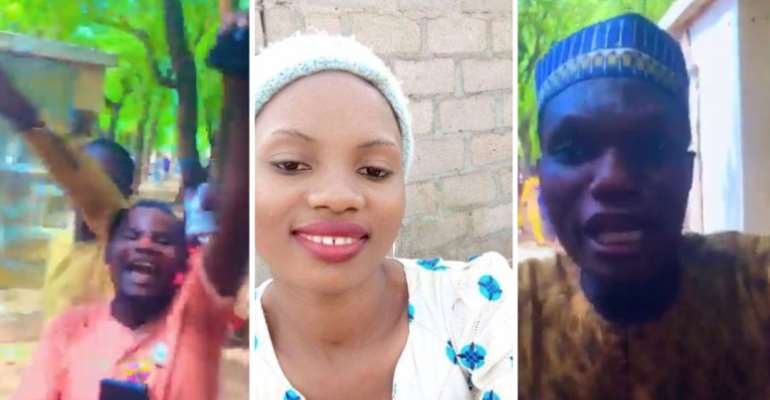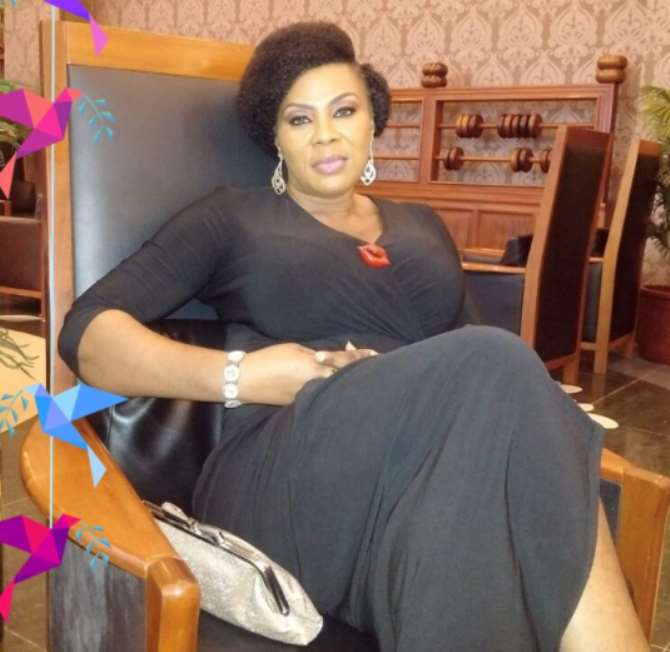Expediency Of Emulating God’s Virtues For Us Not To Fight Over Our Differences

There is no denying the fact that when two Nigerians from the Northern and Southern parts of the country, respectively, meet that they are customarily seen to be one, but attitudinally they are not one as they suspiciously see themselves through the lenses of ethnicity and religion. On account of the dual primordial sentiments which are more often than not displayed, they frequently exhibit deep-seated hatred and killings against one another. To bluntly put it, they trust each another; even in politics. As a professional colleague aptly put it, “The Northerners and Southerners are managing to co-exist”. Against the foregoing backdrop, it is expedient to say in this context that the ongoing case of the killing of Deborah Samson, a 200-levvel student of Shehu Shagari College of Education, Sokoto, who was mobbed in broad daylight within the campus of the college is apt and illuminating enough to buttress my colleague’s view.
Of the two primordial sentiments, that are often exhibited, religion is by far the most contentious issue. This is because we do not only have fights between religions, but also fights within religions. While we can certainly boast of many Nigerians who are totally tolerant of various religious faiths and denominations, there are some of us who take it as a matter of life and death to defend our religious beliefs and criticize those of other faiths we consider ungodly. The rhetoric of religious hostility is encumbered with threats of hell and prophesies of doom and damnation for people of other faiths.
Yet, even less than ethnic differences, religious differences should never be a cause of fighting among believers in the two main monotheistic faiths we have in Nigeria; Islam and Christianity. This is because unlike ethnicity, these religions actually define our humanity because they are based on a doctrine of the unity of reality, the Unity of God that brooks no exclusion or ostracism.
Given the deepening level of religious intolerance in the country, one cannot but ask if the perpetrators have ever come across the advice-giving words of Abhijit Naskar in his book, Revolution Indomable which says, “If you wish to worship the lord, do so with love, not terror, if you desire to practice faith, let that faith be guided by tenderness, not bitterness, and if you want others to understand your outlook, use friendliness, not force.”
Since on Thursday, May 12, 2022, when Deborah was gruesomely murdered in Sokoto by religious extremists, news and opinions that are trending on the ever-scintillating media landscape are no doubt ominous as they make for sobering reading and represent crisis and tragedy. But in a country where the leaders, particularly politicians, hardly care as they are busily obsessed with oncoming presidential elections scheduled for 2023, and therefore, have many serious electioneering matters competing for their attention, they are wont to merely blink and move on to the next issue they find to be gratifying; only to themselves.
Given the monstrousness of what happened in Sokoto, where a beautiful young girl was gruesomely murdered and openly roasted by those whose collective conscience was unarguably seared, it is expedient to say that the leaders can no longer afford to be thickheaded as it is obvious that the height of intolerance in the ever-booming religious industry has become overwhelmingly incontrollable.
In this context, it is therefore entirely predictable that religious intolerance would be fomented in our cities, towns and workplaces with reckless abandon with security agencies looking the other way if not preempted particularly if actions taken from the perspective of what happened in Sokoto are biasedly carried out by the government.
In fact, it is not an exaggeration to say that there is no disputing the fact that the problem of religious violence casts a serious doubt to the stability of the country. This is because without doubt, the country has recorded very bizarre experiences in the domain of religious violence, particularly in mobbing Christians who were alleged to be blasphemous, but who will speak for them when they were meted with jungle justice such as in the case of Deborah?
Some of the prominent examples that are still fresh in mind include those of the murder of a 75-year-old woman, Mrs. Bridget Agbaheme, a Christian and trader at Kofar Wambai market, in Kano, who was beaten to death by irate youths after accusing her of blasphemy against Islam, and also Mrs. Eunice Elisha of the Redeemed Christian Church of God (RCCG), Kubwa, Abuja, who was killed for preaching. Before Nigerians could comprehend the motive behind such barbarousness, another Christian and carpenter at Kakuri area of Kaduna metropolis, Mr. Emmanuel Francis was mobbed and stabbed severally by some Muslim youths for failing to observe the Ramadan fast.
Unfortunately, the blasphemous category of religious conflicts exists mostly in the Northern part of the country where the main protagonists are Hausa/Fulani Muslims and Christian ethnic minorities, while the pagans seem to play a major role in creating a climate of suspicion and intolerance among the groups.
Given the forgoing, does it mean, Nigerians from the Southern part of the country who are predominantly Christians can no more live in the Northern part of the country without having their hearts in their mouths whereas the Northerners relatively move freely in the west to the extent of invading farmlands in the Southern part, and even killing and maiming their hosts? With the way things are, is it not crystal clear that Nigerians from both geographical divides are not in any way compatible to live together?
To me, the government need to be awake from its slumber, and take a second look on blasphemy laws as they were looked into in Pakistan, and perhaps in some Islamic countries, particularly in this 21st-century. The government needs to step up and protect basic principles of human rights and human dignity for everyone everywhere. Not just in accordance with the demands of protesters. The right to freedom of religion or belief should be guaranteed for all. Yet the international community also has its place. It must not turn a blind eye to what is happening in Nigeria at the moment. Protecting human rights, and especially, those of vulnerable individuals or communities is a shared responsibility.
Most expediently, the clerics in the Northern parts of the country should from time to time be preaching to their adherents to be emulating God’s virtues as it would go a long way in helping them to manage their differences with people affiliated to other ethnic groups and religions.
Sandra Ijeoma Okoye (Author)

